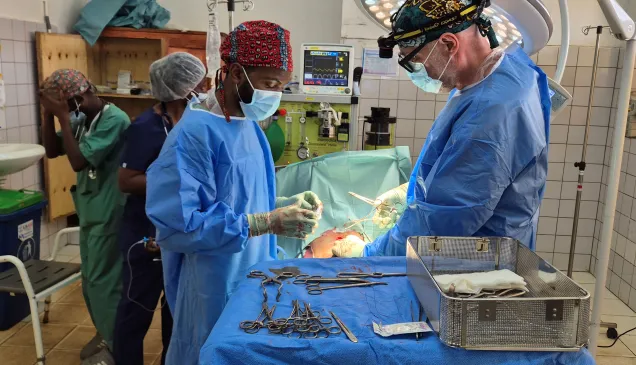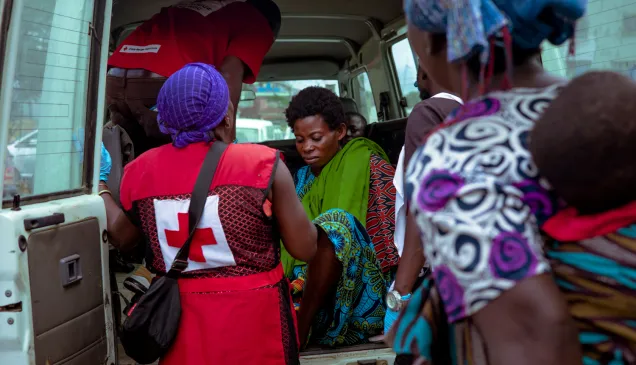Surgical learning hub and global network
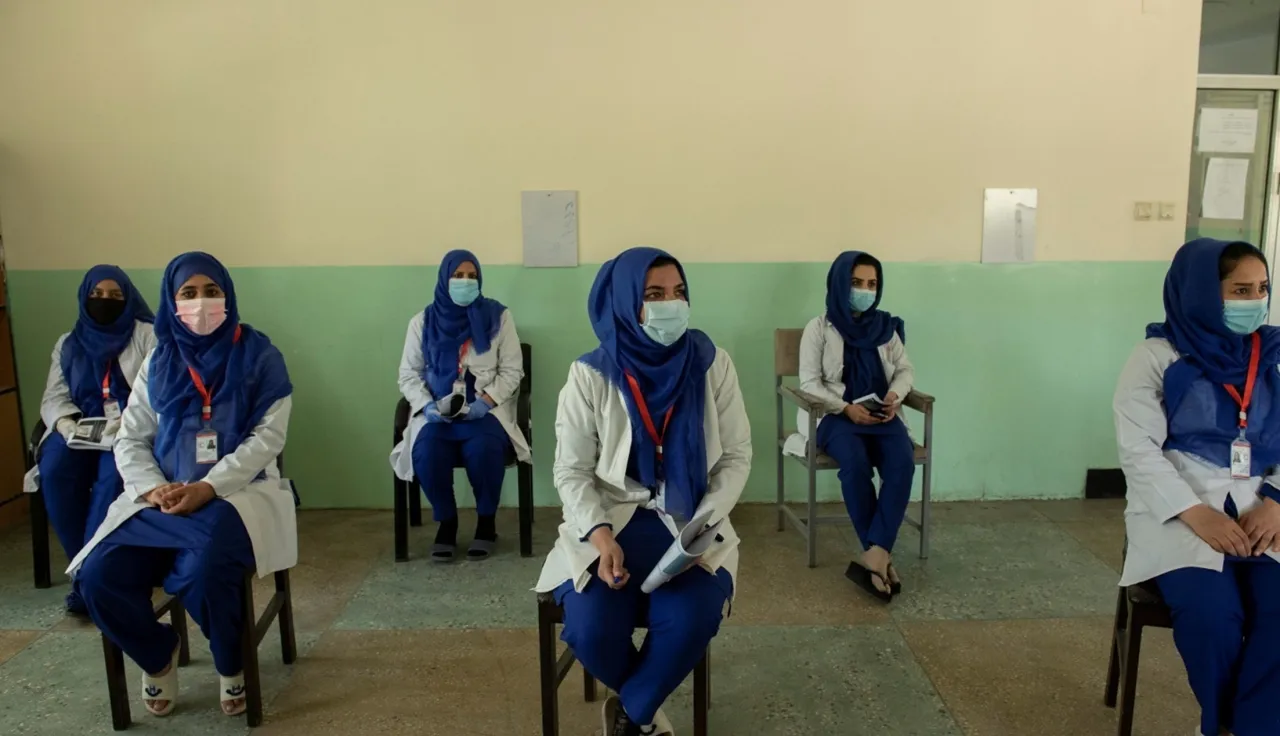
VISION
The Surgical Learning Hub (SLH) and Global Network aim to reduce morbidity and mortality rates of weapon-wounded patients, improving the quality of hospital and surgical care provided in conflicts and other situations of violence. To fulfil this purpose, the initiative relies on the establishment of a training centre in Bukavu, Democratic Republic of Congo (DRC) and a Global Network of partners. Embedded in local health and education institutions, the SLH serves as a physical space for delivering continuous medical education (CME) for surgical teams. Concurrently, the Network brings together stakeholders from the Red Cross and Red Crescent Movement, academia, the development sector, non-governmental organizations and humanitarian aid agencies involved in providing hospital and surgical care. This collaborative effort aims to ensure the sharing of knowledge and promotes effective partnerships, from the global level to the frontline and vice versa.
The delivery of surgical and hospital care in the areas where the ICRC operates has been increasingly impacted by a scarcity of proficient and well-trained health professionals providing quality services in challenging, resource-limited settings. In response to this issue, the ICRC Assembly approved the Hospital Surgical Capacity Building Project (HSCB) in December 2019. The project's mandate considered a phased approach to building hospital and surgical capacity progressively from ICRC to Partner National Societies, to local institutions. The Surgical Learning Hub and Global Network emerged as a crucial initiative to address and fulfil this mandate.
PARTNERSHIPS
The training centre will be built in Bukavu, DRC, where ICRC has been a partner for over a decade. Leveraging the ICRC's long-standing partnerships with the Provincial General Reference Hospital Bukavu (HPGRB) and the University of Bukavu (UCB), the Hub will be locally embedded. This approach ensures that training is conducted by frontline workers experienced in conflict and emergencies, imparting culturally sensitive and context-specific knowledge. The Network will play a pivotal role in coordinating, aligning, and guiding learning pathways, training techniques, curriculum, accreditation, and other essential connections to the broader global health agenda. Moreover, while the project's primary strength lies in its proximity to a conflict-affected area, it also draws benefits from the ongoing ICRC projects in the field, providing valuable experiences for both participants and trainers.
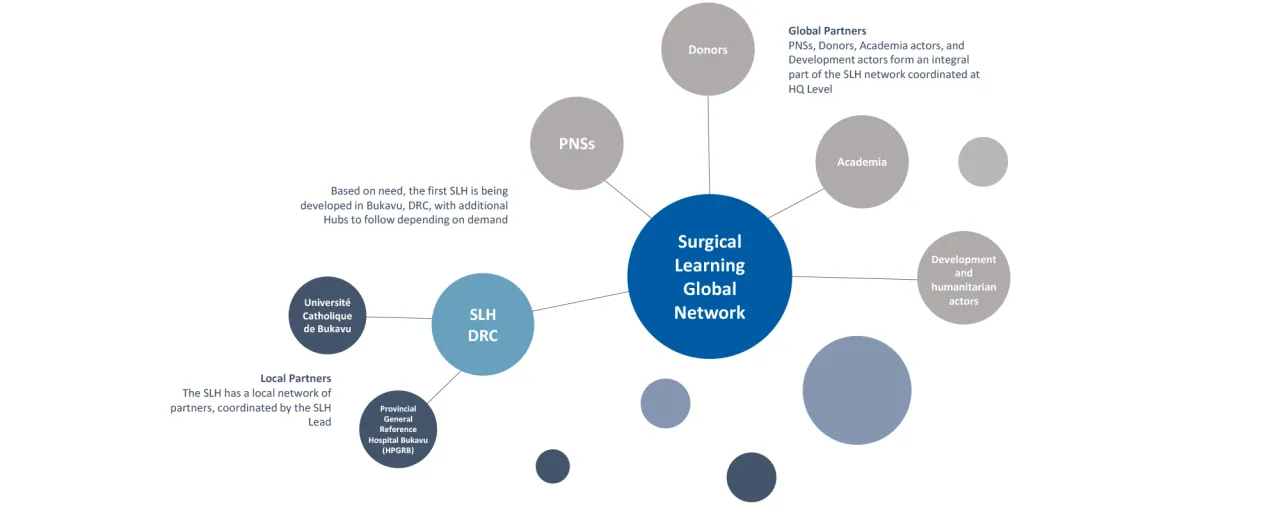
Convened and coordinated by ICRC, the Network includes the Hub and diverse stakeholders with a shared mission to ensure the delivery of world leading care and treatment in conflict settings.
SUSTAINABILITY
Ultimately, the Hub strives to become operationally and financially sustainable with limited or no ICRC involvement. The funding model is based on user fees from training, with international participants cross-subsidizing local staff, supplemented with modest rental fees, thereby covering costs to break even in the long term. ICRC has analyzed the demand for training in the Red Cross Movement and with international partners to identify the revenue model. It has also validated operational costs with the ICRC's Bukavu sub-delegation and local partners. The model builds on a pilot phase running in Bukavu since January 2023.

The centre in Bukavu, DRC is structured to accommodate frontal training and simulations.
IMPACT
This initiative fosters a dual humanitarian impact. On the one hand, it supports local health systems in the region by improving the quality of hospital and surgical care and training local surgeons, anaesthetists, and nurses. On the other hand, it supports the operational capacity of the Red Cross Movement and other humanitarian actors preparing surgical teams in weapon-wounded care. This initiative moves away from a centralized training approach relying on global experts, recognizing its limitations in fostering inclusive and accessible programming for the diverse hospital and surgical teams deployed in conflict settings. Instead, it aims to facilitate a multilateral knowledge transfer, leveraging both local and global expertise through the Hub and the Network.
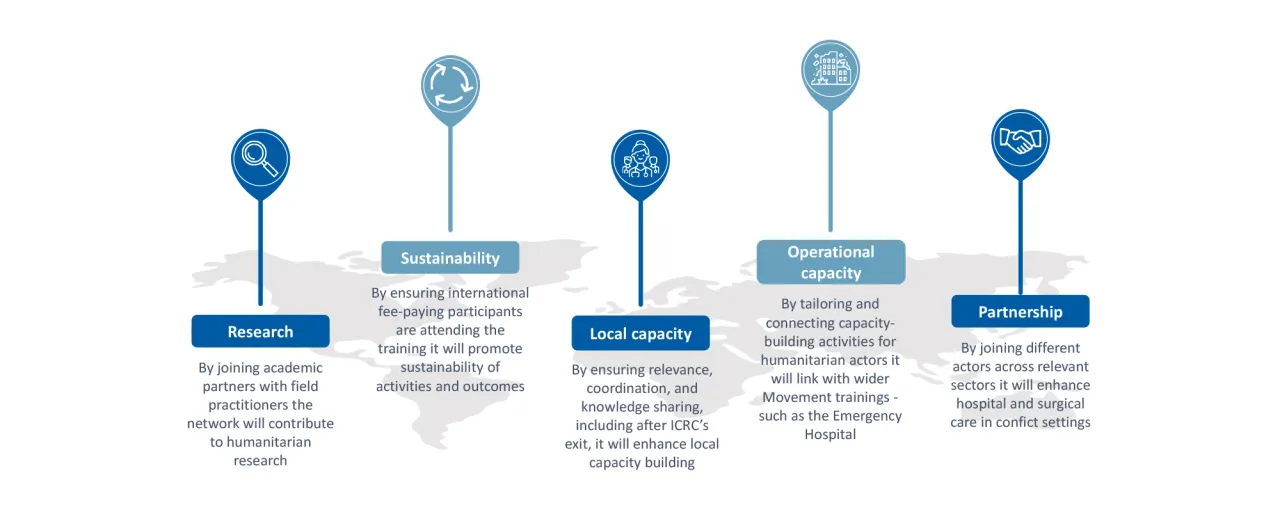
The Network leverages on partnerships to enhance and ensure the sustainable outcomes at both local and global level.
Research
By joining academic partners with field practitioners the network will contribute to humanitarian research
Sustainability
By ensuring international fee-paying participants are attending the training it will promote sustainability of activities and outcomes
Local capacity
By ensuring relevance, coordination, and knowledge sharing, including after ICRC's exit, it will enhance local capacity building
Operational capacity
By tailoring and connecting capacity- building activities for humanitarian actors it will link with wider Movement trainings - such as the Emergency Hospital
Partnership
By joining different actors across relevant sectors it will enhance hospital and surgical care in confict settings
PUBLICATIONS:
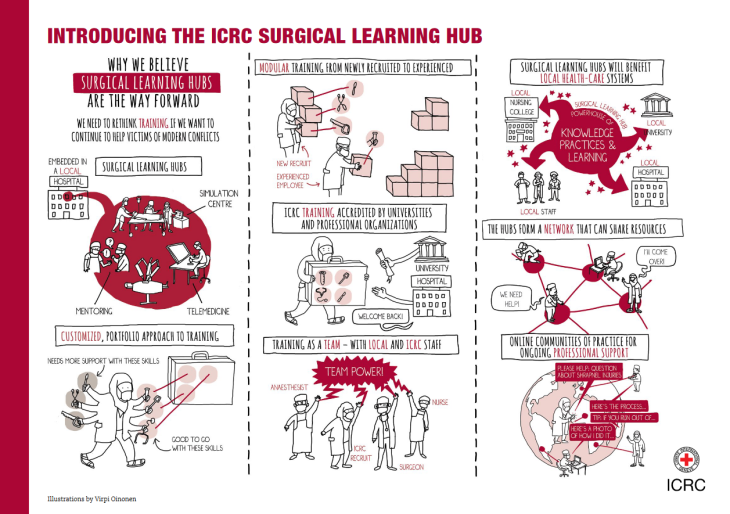
Introducing the ICRC Surgical Learning Hub: Surgical Learning Hubs concept and implementation is one of the key deliverables of the Hospital Surgical Capacity Building Project. The poster explains how setting up the Surgical Learning Hub is crystalizing all the innovative ingredients to effectively build capacity in war surgery, ensuring a sustainable impact through local partnerships.

Hospital Services Capacity-Building Framework: Building Capacity Today, for the Health Outcomes of Tomorrow: This framework aims to provide a comprehensive approach to building the capacity of hospital and surgical staff. It expands beyond the definition of capacity building as training to include three levels: individual, organization, and system. Ultimately, it strives to standardize capacity-building practices across hospital projects to ensure sustainable health outcomes for the communities ICRC serves.
OUR PARTNERS:


